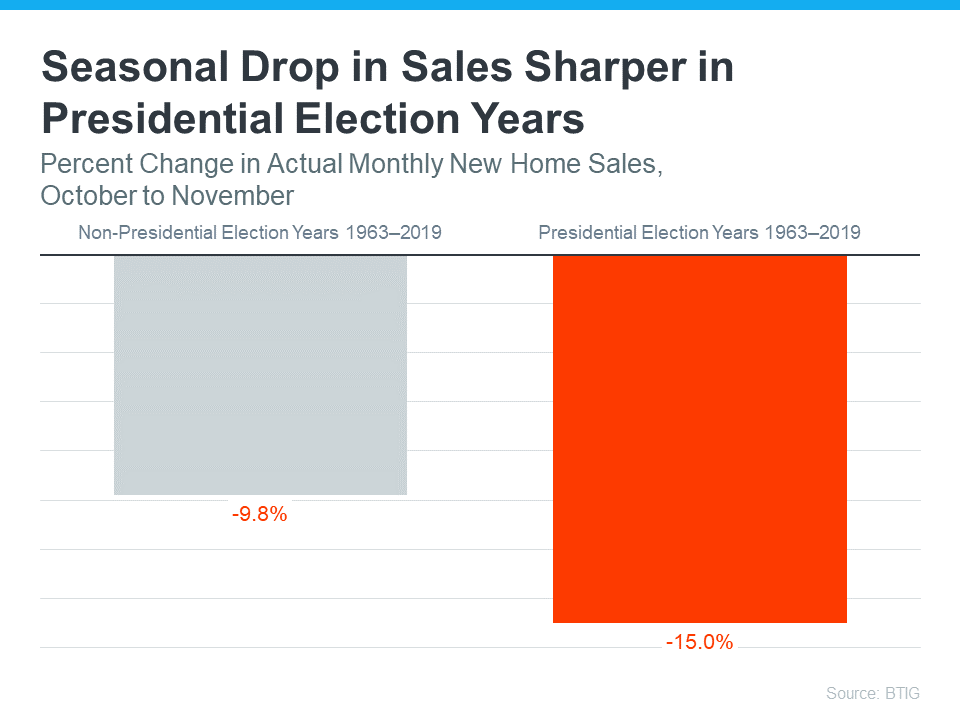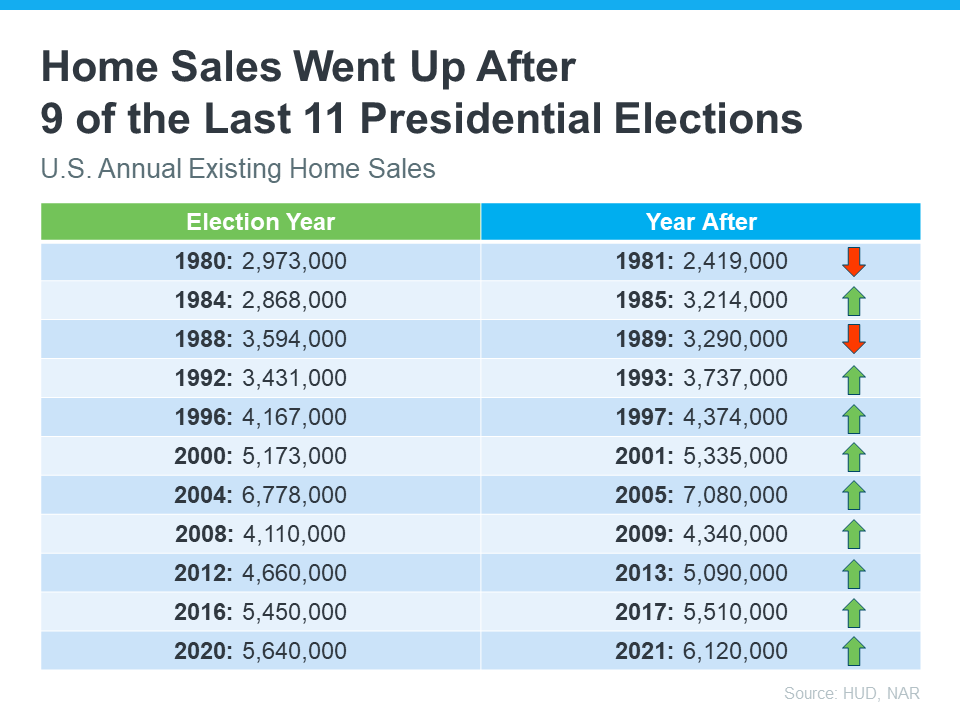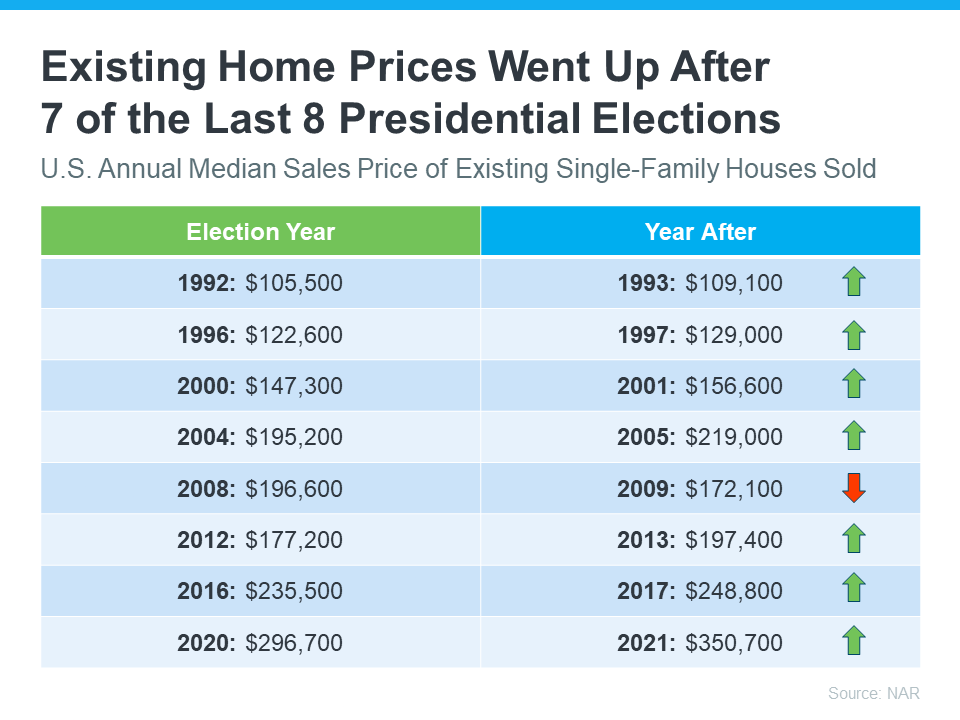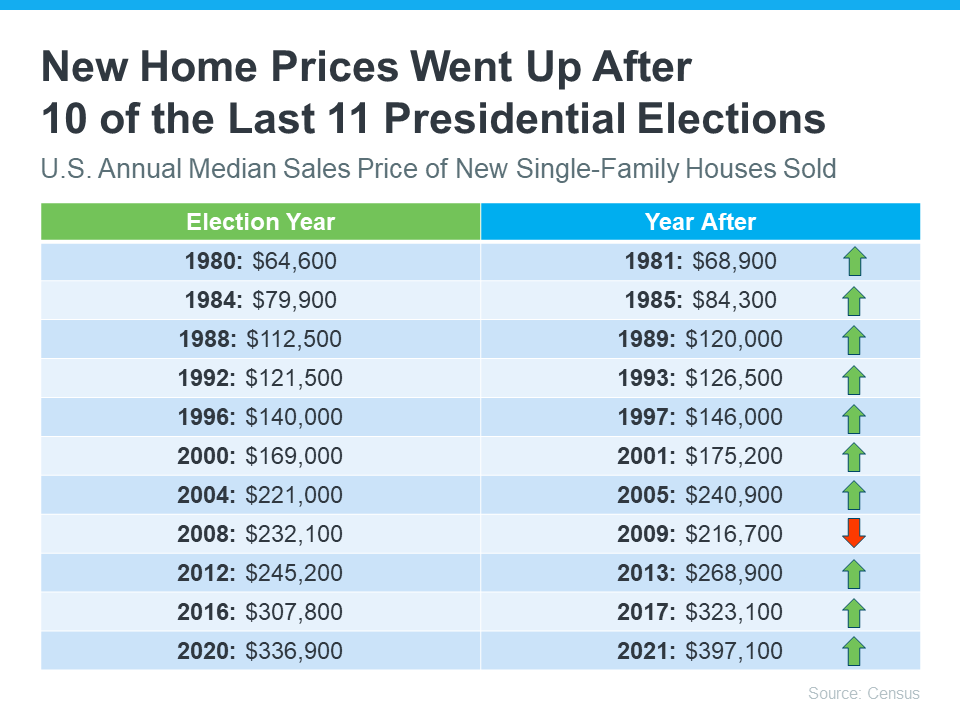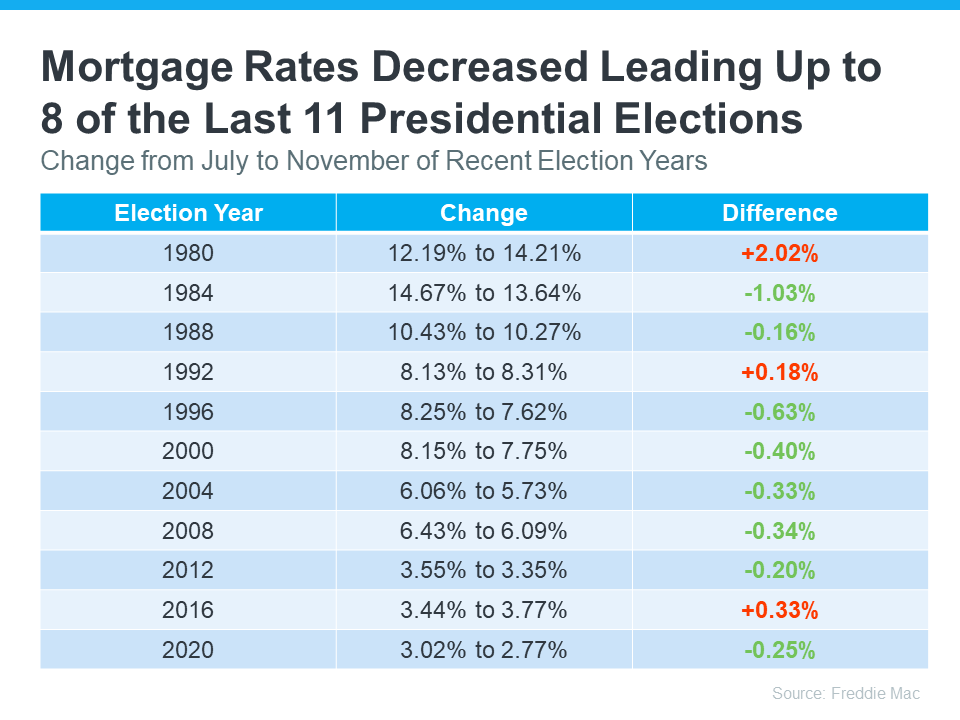Last week’s poll asked the question, “Do you think the upcoming presidential election affects the real estate market?” and more of my readers said yes than no, but is that actually true? The best way to know for sure is to look back at previous presidential election years to see how they compare to non-election years.
Al Lord, the Founder and CEO of Lexerd Capital Management described it best with this statement, “Presidential election years affect the national housing market and mortgage rates through three interrelated channels: uncertainty, policy expectations, and consumer confidence… This is because consumers may choose to postpone major purchases or sales until they gain greater confidence in the country’s direction.”
The keyword in that statement is postpone. What happens is, many consumers will just put their hands in their pockets during October and November and say, “I am going to wait and see what happens.” You see, real estate isn’t like other businesses, like restaurants, for example. When a family decides to make dinner at home, the restaurant totally lost that sale, but when someone needs to move and there is currently uncertainty in the market, they will postpone the move, but the move will still happen.
Ali Wolf, the Chief Economist at Zonda had this to say, “In December [following an election], and in the following year, the sales that are lost during November are recovered. It isn’t that consumers say, ‘I’m nervous and I never want to buy.’ They say, ‘I’m nervous. Let’s just wait to see how things play out.’ Usually, home sales are unchanged compared to a non-election year with the exception being November. In an election year, November is slower than normal.”
The real estate market is predictable when it comes to presidential elections. Take a look at this chart showing us that the number of home sales went up in the following year after 9 of the last 11 presidential elections according to HUD and the National Association of REALTORS.
There were some presidential election years when there was a lot of extra uncertainty in the market. In 2008, there was the global financial crisis and recession. In 2012, it was the fiscal cliff, major health care expansion review by the Supreme Court, and a European debt crisis. In 2016, it was the Brexit referendum. In 2020, it was the global pandemic, and in 2024, we have high inflation and war. Ryan Lundquist, a Residential Appraiser and Housing Analyst said, “An election year doesn’t alter the price trend that is already happening in the market.” So, whatever is happening in the real estate market won’t be affected by the election.
One other thing you can count on is that home prices will likely go up the year following an election. Take a look at these two charts, the first showing that existing homes (used homes) went up in price in 7 of the last 8 years following a presidential election, and the second showing that new home prices went up 10 of the last 11 years following a presidential election. It is obvious that if it hadn’t been for the housing crash of 2008, prices would have went up every one of those years.
How about mortgage interest rates? The change from July to November leading up to a presidential election went down in 8 of the last 11 election years.
So there you have it. The effects are not major, but pretty predictable, and most of the change happens in the year following the election, no matter who is elected. If this is the best time for you to make that move, there is no reason to put it off.
Norwalk IA Real Estate –
Jon Niemeyer, Broker/Owner/REALTOR® at EXIT Realty North Star. I list and sell real estate in Central Iowa including Norwalk, Des Moines, West Des Moines, Cumming, Indianola, Carlisle, Waukee, Urbandale, Grimes, Clive, Johnston, Ankeny, Altoona, and Pleasant Hill in the Counties of Warren, Polk, Dallas, and Madison. Call
Jon Niemeyer at
515-490-4675.
